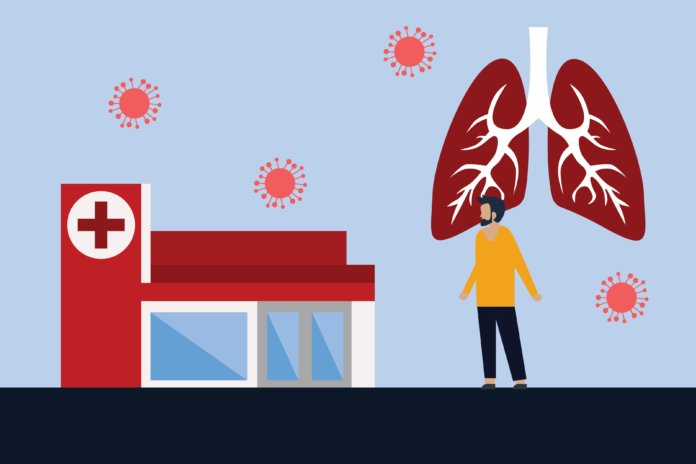Long COVID includes sets of symptoms that usually last for three to six months after the infection, but no cause for this phenomenon is known
By BRANDON NGUYEN — science@theaggie.org
A study published in PLOS Medicine found that about one third of patients infected by COVID-19 experienced symptoms three to six months after their diagnoses, and up to nearly 60% of patients experienced at least one acute symptom during the entirety of six months following their diagnoses. These post-symptoms have to do with what researchers and clinicians have coined “long COVID.” This term is used to describe the prolonged effects of the viral infection following the virus’ disappearance in the patient.
Dr. Mark Avdalovic, a professor of clinical medicine and vice chair of the Department of Medicine at UC Davis Health, explained the context around the emergence of the Post-COVID-19 Clinic that opened in November 2020, for which he serves as the director.
“The definition for a long COVID was that you would have persistence of symptoms approximately four weeks after the onset of your acute infection,” Avdalovic said. “There was a wave of healthcare workers who caught COVID-19 very early in the pandemic, and so amongst our own colleagues, we started to see in the late summer of 2020 and early fall that there was a persistence of certain symptoms. So many of us were curious and thought that this was an important aspect of the disease for us to understand better, leading us to open up this Post-COVID Clinic.”
Despite the countless patients hospitalized due to COVID-19, Avdalovic noted that he could not pinpoint a root cause for these long COVID symptoms that seemed to last for months after the infection. However, the clinic had found patterns of long COVID symptoms that could help physicians group patients so they could be referred to the right specialist. These categorized symptoms ranged from respiratory side effects, including shortness of breath but no coughing, to rheumatologic symptoms, including joint pains and muscle aches.
“The symptoms do not necessarily align with any kind of blood tests that certify that their symptoms are due to a known inflammatory process, for example lupus or rheumatoid arthritis,” Avdalovic said. “So what I mean is they have symptoms where their body aches and their joints ache but nothing that would give them that distinct diagnosis as we currently understand, so it’s really a collection of findings.”
Dr. Bradley Sanville, a pulmonary and critical care physician who helped launch the Post-COVID-19 Clinic, further elaborated on the difficulty in finding a cause for these cohorts of symptoms.
“When we started the clinic, we expected that a lot of the people who had been hospitalized and on ventilators would have really damaged lungs,” Sanville said. “We expected to see a lot of bad fibrosis. But personally, I haven’t seen much fibrosis, and, for whatever reason, the COVID-related damage seems to improve over time.”
Both Sanville and Avdalovic underscored that with time, however, the symptoms naturally subside. Despite the mystery behind the long COVID symptoms that have afflicted many patients, one can still be hopeful in knowing that the symptoms will disappear.
“If you’re coming to see me and you’re greater than three months out and still with persistent symptoms, sometime in the subsequent three to six months your symptoms likely will either subside or completely go away,” Avdalovic said. “We’ve had some successes with enrolling patients in monitored exercise programs that slowly keeps an eye on their heart rates in response to exercise. After the program, around seven to eight weeks later, folks are able to do more exercise, with their exercise capacity being objectively improved, as well as quality of life scores. So there is hope that a gentle exercise does seem to result in some improvements.”
Written by: Brandon Nguyen — science@theaggie.org







